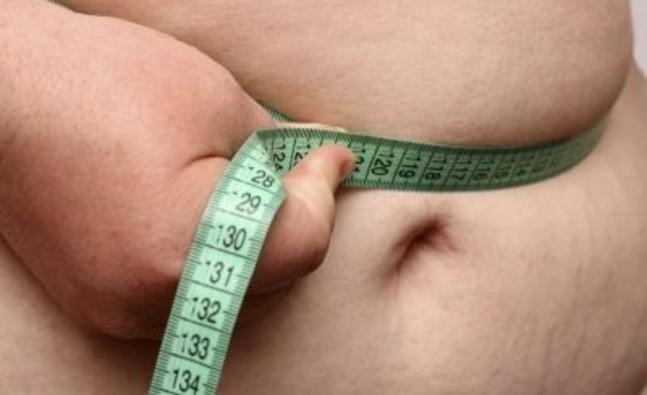Are You ACTUALLY a Binge Eater?
The United States Food and Drug Administration just approved the first drug that’s designed to target moderate to severe binge eating disorder (BED), called Vyvanse (a.k.a. lisdexamfetamine dimesylate, a drug that's also used to treat A.D.H.D. in children 6 and older).
While this treatment could help the more than five million women across the country whose lives are affected by bingeing (more people have BED than any other eating disorder), it’s important to remember that, just because you overeat from time to time (come on, who doesn’t?), it doesn’t mean you have the disorder.
RELATED: 11 Strategies Nutritionists Use to Avoid Overeating
"If you’re at an event with killer food and you stuff yourself to the point of bursting, that’s not a binge eating disorder," says board-certified addiction medicine specialist Jason Powers, M.D., chief medical officer at Right Step and Promises Austin. "If you’re at a wedding with amazing cake and you go back for thirds, that, too, doesn't mean you have a disorder. It's when you eat to get zoned out, when you feel your anxiety can be quelled only by checking out with an entire cheese pizza."
That’s why BED is less about the amount of food you put away—although that certainly is a sign of bingeing—and more about the emotions that surround that bingeing.
The fifth edition of Diagnostic and Statistical Manual of Mental Disorders defines BED as "recurring episodes of eating significantly more food in a short period of time than most people would eat under similar circumstances, with episodes marked by feelings of lack of control. Someone with binge eating disorder may eat too quickly, even when he or she is not hungry. The person may have feelings of guilt, embarrassment, or disgust and may binge eat alone to hide the behavior. This disorder is associated with marked distress and occurs, on average, at least once a week over three months."
“People with binge eating disorder are trying to extinguish a pain," says certified eating disorder dietitian specialist, Sondra Kronberg, M.S., R.D., a past member of the National Eating Disorders Association (NEDA) board of directors. "Bingeing becomes a way to try to fill up an emptiness."
Someone's coping mechanism of choice may be a 10-piece bucket of chicken—or three bags of lettuce. Which brings up the huge misunderstanding that bingeing and obesity go hand-in-hand. Not all people who are obese are bingers—and not all bingers are obese. According to the Obesity Society, up to 30 percent of people seeking obesity treatment report some degree of binge eating, but only seven to 10 percent of treatment-seekers actually meet the clinical criteria for BED.
What’s more, even normal and underweight people can suffer from BED. Some bingers have crazy fast metabolisms. Some yo-yo between bingeing and severe food restriction—which poses another huge health risk. But all are suffering from a serious eating disorder that can isolate people from their friends and family, diminish the quality of their lives, and sometimes prove fatal, says Kronberg. (Over the long term, bingeing can contribute to heart, kidney, and liver disease, as can going back and forth between bingeing and starvation measures.)
RELATED: The Deadliest Eating Disorder
Which is why we should probably all watch our one-off “I’m such a binger” comments. “Someone who says they ate three cookies because they’re a ‘binger’ is unintentionally downplaying the true nature of the disease and the emotional pain people with the disorder suffer,” says Powers.
Of course, that’s easier said than done. “Our culture actually promotes not eating," says Kronberg. "Eating anything beyond very little is often considered a binge, only adding to women’s disordered thinking about food."
A good start: Just recognizing that there’s a difference between an occasional slip-up and a true eating disorder.
RELATED: The Trait That Makes You Susceptible to Overeating
-
Helping older women maintain weight loss
-
5 Eating tips for dropping those extra winter kilos
-
10 GREAT TIPS ON HOW TO LOSE BODY FAT
10 Great tips on how to lose body fat You need a certain amoun
-
Fruits that donât aid weight loss
-
What to Do Every Hour to Drop Pounds All Day
This article was written by Jenny Sugar and repurposed with permission
-
Tight, Toned Tummy Tips: Fibre is your superhero
- DON'T MISS
- How fattening are nuts?
- Crazy celeb diet “tricks”: Apple-cider vinegar shots
- 12 Nutritionists Share the Top Tips They Give to Clients Trying to Lose Weight
- Exercise tips for weight loss: Bored with exercise? Try this
- How to have a guilt-free festive season
- Cut down your meat intake for weight loss
- What to do when weight-loss fails
- Low-calorie favourite for weight watchers
- Get more informed to limit weight gain
- Fashionable Nutrition Myths: Weight loss works differently for women & men




